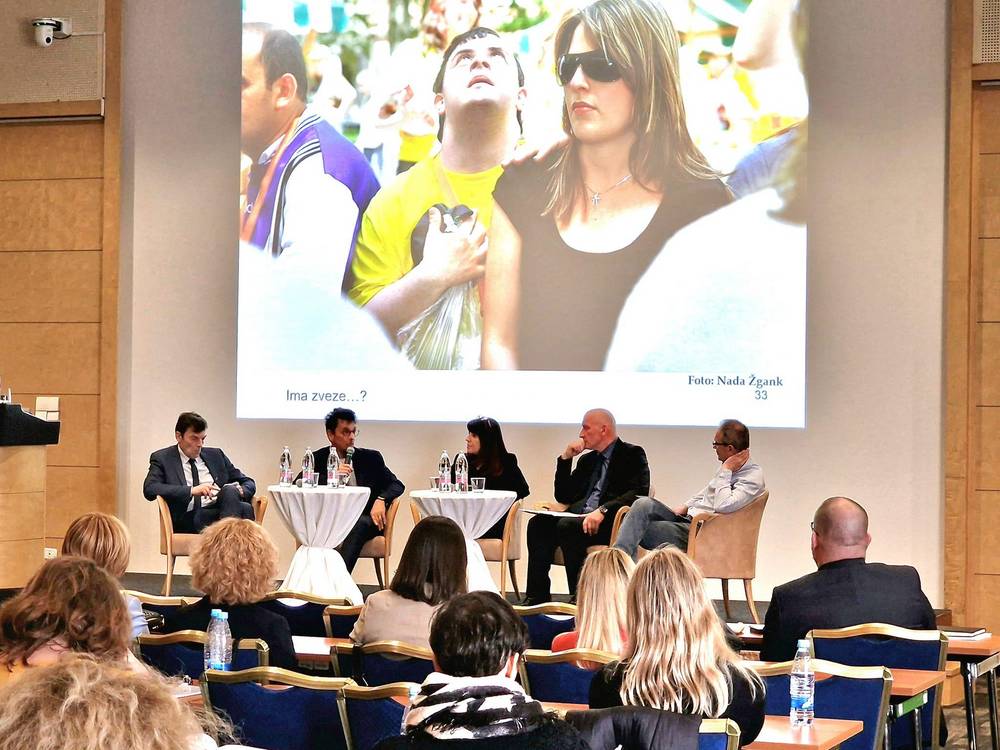Taking part in the roundtable Responsible Alliance for an Inclusive Society, which was part of the 32nd Days of Education held in Portorož on 27 March 2024, the Human Rights Ombudsman Peter Svetina emphasised, among other things, that in order to achieve comprehensive inclusive education, it is necessary to consider the education of children with special needs when renovating the school system.
The Ombudsman informed those present that he is actively dealing with the issue of realising the right to an appropriate programme and support for children with special needs at the level of the elementary school programme. He was informed that quite a few schools, in which children with special needs are included, have problems with overcrowding. In some places, the number of pupils has even doubled in the last 12 years. At the same time, schools face a serious shortage of personnel, especially specialised professionals. More and more children have more and more disorders, which are expressed in increasingly severe forms, so schools and institutions find it difficult to retain existing employees and recruit new ones due to the complexity of the work. A special challenge also comes with educating children from other cultural and linguistic backgrounds, as well as enrolling children from municipalities that are not the founders of the school.
The Ombudsman is convinced that the state must help the municipalities and not overburden them otherwise there is a risk that the orderliness of a certain area depends on the commitment and engagement of local community leaders.
The Ombudsman believes that it would be reasonable to solve the problem of overcrowding with additional departments for children with special needs in regular elementary schools. With such departments, students with lower intellectual abilities would exercise their right to attend programmes adapted to them, and diversion into segregated forms of education by changing location would not be necessary. According to the Ombudsman, such a solution would also mean the urgent relief of specialised institutions.
The Ministry of Education (MVI), whom the Ombudsman contacted, is in favour of such a formation of departments, which pleases the Ombudsman Petar Svetina. He believes that by the fact that, even after the transition from kindergarten to primary school, at least some children with special needs remain in regular schools, even if in separate classes, they all grow up together accepting differences. "In this way, we would definitely achieve the necessary positive effects of coexistence and prevent alienation and the alarming lowering of the perception of the needs of more vulnerable groups. Maybe even more young people would decide to study and find further employment in this field," emphasises Ombudsman Svetina. Adding that he also believes that we are all part of the same community, and that accepting differences enriches everyone.
At the end of the roundtable, the Ombudsman emphasised that the alliance for ensuring equal rights, accessibility, inclusion, and quality of life for people with special needs is of vital importance for every society. "It is imperative that we responsibly strengthen society's immune system in cooperation and take care of the poor, especially those who do not know how or cannot do it themselves. Slovenia has all the possibilities and resources for this," Ombudsman Peter Svetina was clear.
*****
The roundtables on 26 and 27 March 2024 in the framework of the 32nd Educational Days in Portorož were organised by the Association of Special and Rehabilitation Educators of Slovenia, the Association of Training Organisations of Slovenia, and the Institute of Education of the Republic of Slovenia. Its purpose was to shed light on the topic of various possible forms of schooling for children with special needs and to determine what are the pedagogical, curricular, systemic, and conceptual obstacles to the inclusion of children with special needs in the regular school system and with what changes to create a school space of diversity.

![[Translate to English:] Pogovor](/fileadmin/_processed_/4/6/csm_434265788_839747938194895_59830871372249914_n_0b8cdf79da.jpg)